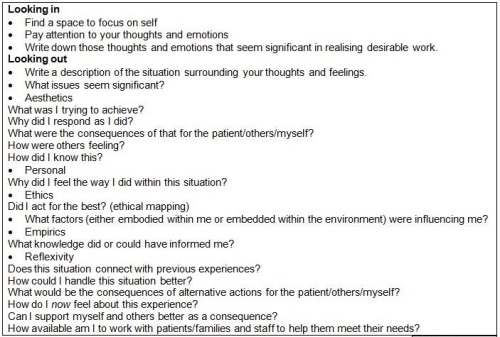How to use Johns’ Model for Structured Reflection (2006)
Johns’ Model for Structured Reflection (2006)
 Good for: Organisational model, examines situations in context of the environment. Provides prompt questions that are easy to follow, and can be used in any order (although they follow a natural progression). Can be used by individuals or groups. Based on Carper’s (1978) four types of knowing -empirical, personal, ethical and aesthetic- Johns adds a fifth one – reflexivity- to create his model.
Criticisms are: The prompt questions aren’t rigidly structured which could be confusing for someone inexperienced to know which ones could be omitted and which are salient for their particular reflection. The amount of questions means it could be time consuming.
Good for: Organisational model, examines situations in context of the environment. Provides prompt questions that are easy to follow, and can be used in any order (although they follow a natural progression). Can be used by individuals or groups. Based on Carper’s (1978) four types of knowing -empirical, personal, ethical and aesthetic- Johns adds a fifth one – reflexivity- to create his model.
Criticisms are: The prompt questions aren’t rigidly structured which could be confusing for someone inexperienced to know which ones could be omitted and which are salient for their particular reflection. The amount of questions means it could be time consuming.
Order Now